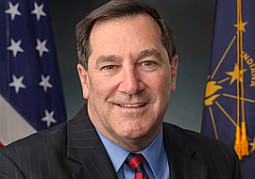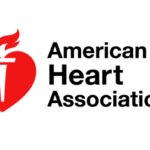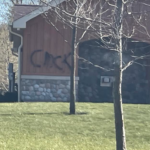 Washington, D.C. — The Senate passed bipartisan legislation that would make it easier for children of fallen first responders to attend college. The bill, introduced by U.S. Senators Joe Donnelly, Bob Casey (D-PA), Pat Toomey (R-PA), and Susan Collins (R-ME) would increase the amount of Pell Grant money available to qualifying students who are the children of fallen law enforcement officers, firefighters, EMS workers, and fire police.
Washington, D.C. — The Senate passed bipartisan legislation that would make it easier for children of fallen first responders to attend college. The bill, introduced by U.S. Senators Joe Donnelly, Bob Casey (D-PA), Pat Toomey (R-PA), and Susan Collins (R-ME) would increase the amount of Pell Grant money available to qualifying students who are the children of fallen law enforcement officers, firefighters, EMS workers, and fire police.
The bipartisan legislation, the Children of Fallen Heroes Scholarship Act, helps the children of a fallen first responder who qualify for a Pell Grant to be treated as if their Expected Family Contribution was zero, making the student eligible for the maximum Pell Grant award authorized by law, currently $5,815 per year for a full-time student.
Donnelly said, “Our first responders — law enforcement officers, firefighters, and EMS workers — put their lives on the line to keep our families and communities safe, and some make the ultimate sacrifice. We must do all we can to help the families of our fallen first responders, and this should include ensuring that their children can get a good education.”
Casey said, “Our first responders make sacrifices for communities across the nation on a daily basis. Our nation has a deep and abiding obligation to the children of first responders who have made the ultimate sacrifice. The loss of a parent takes an unimaginable toll on a child. This legislation is a commonsense step that Congress can take to ease the burden that these children confront as they prepare to enter college.”
Toomey said, “When chaos and destruction come, our law enforcement officers, firefighters, and other first responders run into the breach, risking their own safety in order to save lives. Too often, they make the ultimate sacrifice. We owe our first responders and their families a debt of gratitude we can never repay. I am delighted that the Senate agrees that our bipartisan bill is one small way to say thank you. The least we can do is help to care for the family those heroes left behind and ensure their children are able to receive an education.”
Collins said, “We count on our first responders to be our first boots on the ground when tragedy strikes. These brave men and women make tremendous sacrifices to protect our communities, and we owe them all a debt of gratitude. For first responders who lose their lives in the line of duty, this bipartisan legislation would increase their children’s access to an affordable education and help to ease the financial onus placed on their families. I am pleased that the Senate has advanced our bill, which could make the difference for whether a child can attend college.”
Harold A. Schaitberger, General President – International Association of Fire Fighters said, “Every day fire fighters put their lives on the line to help communities across the nation. Every year, the fire fighter community loses more than 100 dedicated members due to death in the line of duty. While the loss of a fire fighter has a ripple effect throughout the community, no one suffers more than the families of fallen fire fighters. The Children of Fallen Heroes Scholarship Act provides critical help to the families of those who have made the ultimate sacrifice for our country.”
Pell Grants are awarded based on factors including: a student’s financial need and how much each student/family is able to pay toward a college education, a student’s status as a full-time or part-time student, as well whether the student has plans to attend school for a full academic year or less.
In 2013, more than 200 public safety officers were killed in the line of duty, including law enforcement, firefighters, EMS workers, and fire police. That number increased to nearly 220 line of duty deaths in 2014, according to the U.S. Fire Administration, Officer Down Memorial Page, and National EMS Memorial Service.
This bill would help ease the financial burden on children of fallen first responders by increasing federal student aid opportunities for those children who pursue a college education. TheChildren of Fallen Heroes Scholarship Act is supported by the Fraternal Order of Police and International Association of Firefighters.
Through existing law, a similar benefit is provided to children whose parent or guardian in the Armed Forces and died as a result of military service in Iraq or Afghanistan after September 11, 2001. Eligible students may qualify for the maximum award if they were younger than 24 years old at the time of a parent or guardian’s death or were enrolled in college or career school at least part-time.














